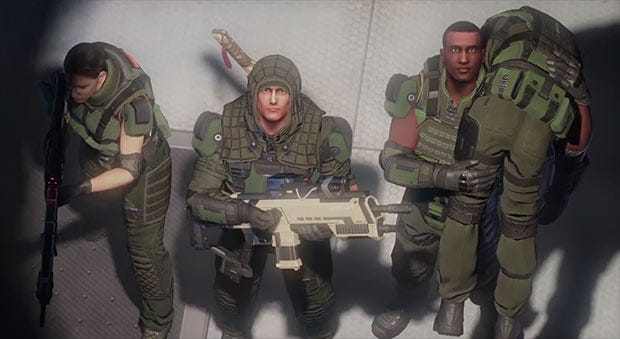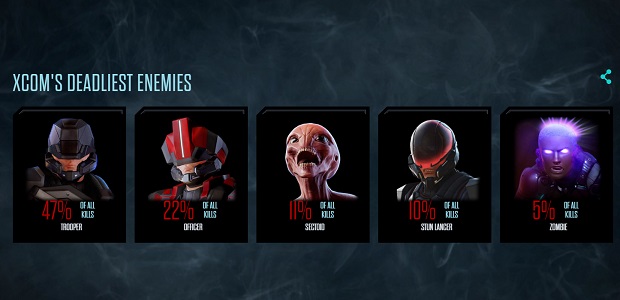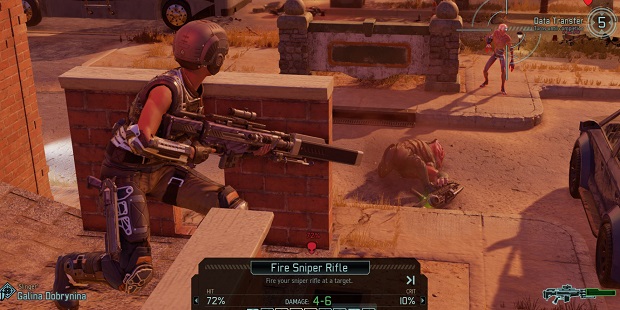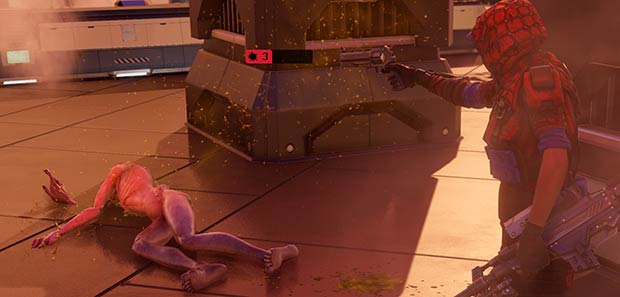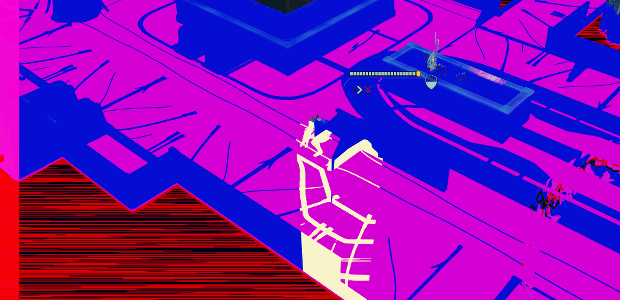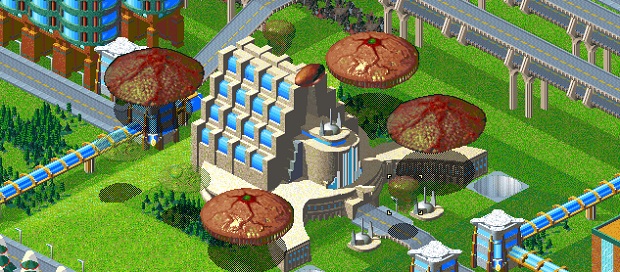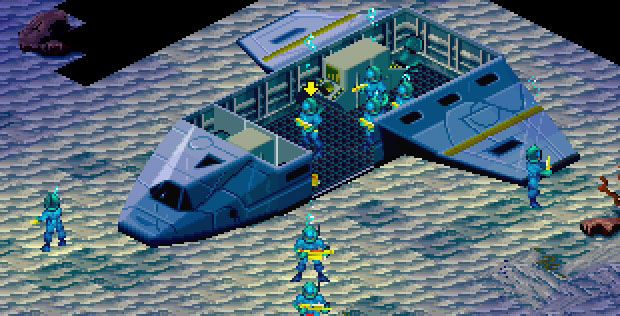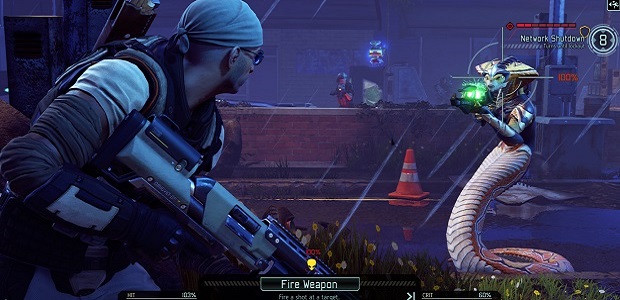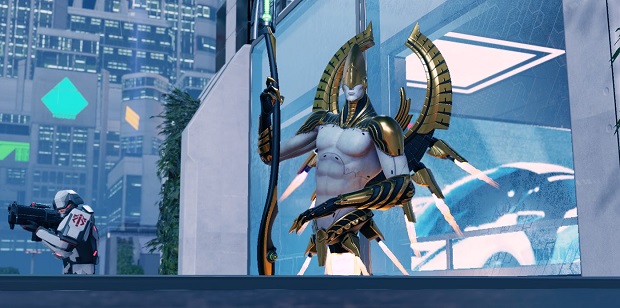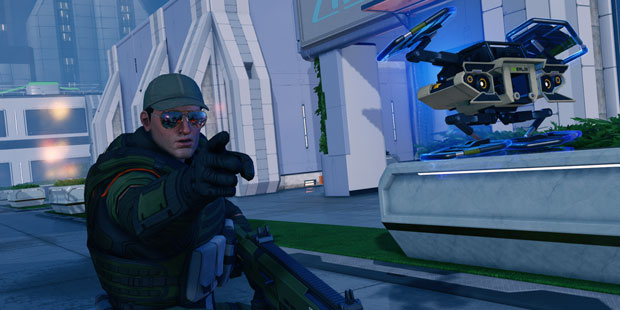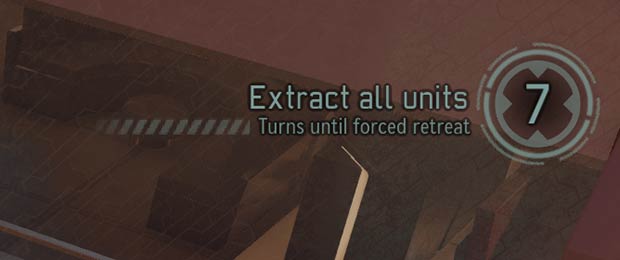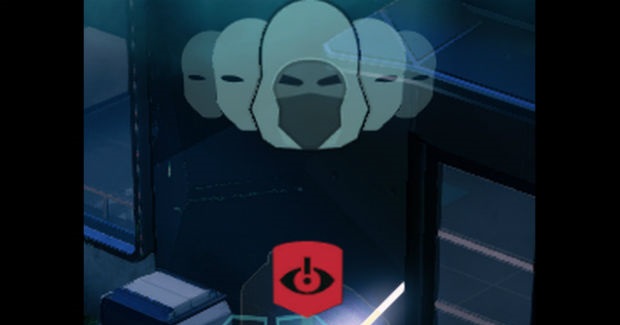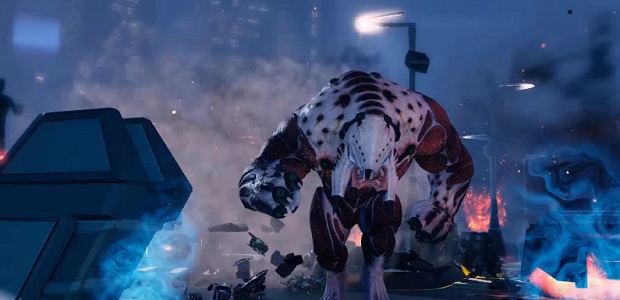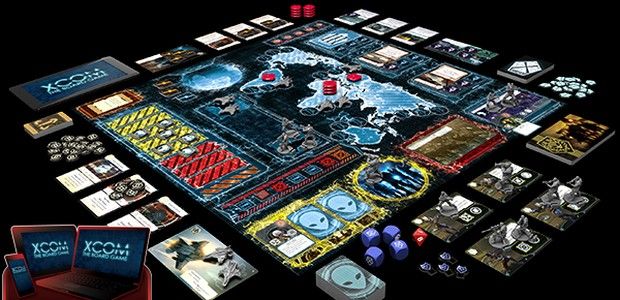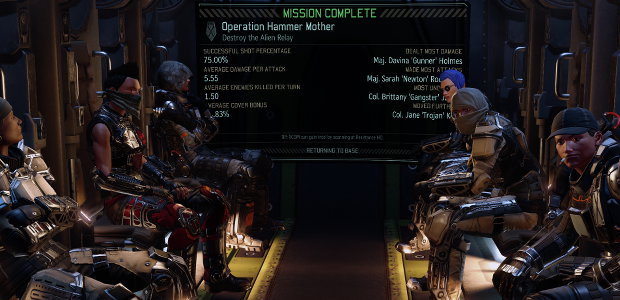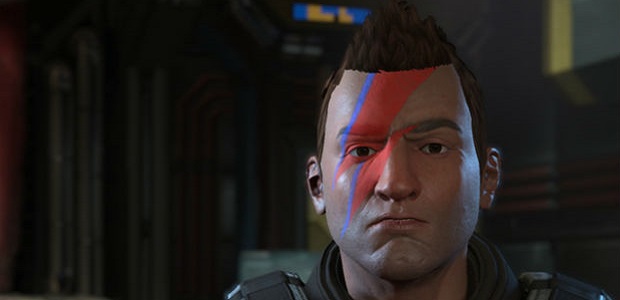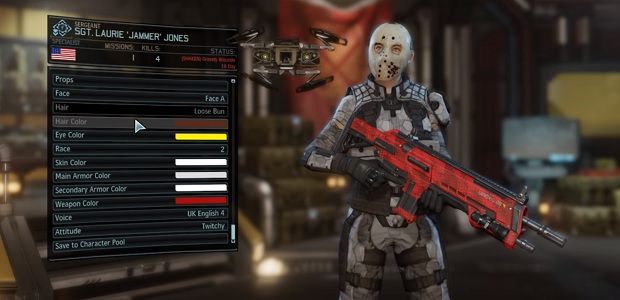Interview: Firaxis' Jake Solomon On What Went Right And Wrong With XCOM 2
Tactics, Turn Timers, Difficulty, Boardgames, Bugs & Beards
In which Adam and I sit down with XCOM 2 lead designer Jake Solomon to dissect the strategy sequel. We discuss what it does well and some of the complaints levelled at it, hear about ideas tried and discarded during development, why story had more of a focus this time around and the continued importance of the original X-COM games.
Alec: Important things first. How come you have the United Kingdom and Scotland as soldier nationalities, but not a separate Wales, England, Ireland or Northern Ireland?
Jake Solomon: That's a very good question. If you're asking me if I'm some sort of Scottish Independence sympathiser, I will first have to ask how you feel about that. I don't know why. You're right, I need to add Wales and separately England in there, I have to. But at that point I think the voice actors would kill me, because we'd need a Welsh accent. We've got English, Irish, Scottish and Australian already, which I'm very excited about.
Alec: How are you feeling about the game now it's out?
Jake Solomon: I think it is very nice when you work on something for a very, very long time and the relationship with the audience changes from showing you things and we can't show you everything that you want to see but when it's finally in people's hands and they are enjoying it... Not much beats that feeling, when people can start playing and they can share their stories with you. This is gonna sound corny, but I do think that you get to put a little happiness into the world, and when you see evidence of that it's something that I personally take really seriously. You get older and you think about what is it that you're doing, what you have committed to, and I always do get a particular pleasure that we get to put happiness into people's lives. When you first release a game and you get to hear some of the happy stories then I think that's very, very gratifying and humbling. That's definitely the best part of the job, for sure.
Alec: When I was reading about it in the run-up I was confused by all this new stuff - concealment and the aliens having won. This isn't XCOM, I don't know what this is! Then just a few hours in it's 'this is my old friend, it's nice that they're back.' What's the line between making the game everyone wants and making the same thing all over again?
Jake Solomon: It's certainly a very difficult balance. You make a sequel, then you have to ask yourself the question 'why?' Why am I making this?' In terms of am I doing right by people? If you go out there in front of people as a developer and you say 'hey, we have something new that we'd like you to pay money for.' You do have to ask yourself the question from their perspective, why a sequel? If people are still playing Enemy Unknown then what's the point of making an XCOM 2. You have to add in features that then change it.
Obviously, we don't make perfect games and so there's always, always room to improve. You get the itch to say that these are things that, as a team, we think would make the game better. So you add these changes and then of course the balance is you want people to say 'this is new' but you don't want people to say 'what the hell is this, this isn't XCOM?'
Alec: The change I hear protested about the most - though by the way I don't feel like that myself - is that some people are concerned that it's too hard, too unforgiving.
Jake Solomon: The difficulty is actually one of those things that can be traced to a particular conversation pretty late - very late, actually - in development. I had been pushing the mantra for a long time that we need to make Normal or Veteran difficulty basically an 'I want to see the cinematics' mode, an 'I want to see the story' mode, and the player can get through it and it shouldn't be that difficult. But very, very late in development everybody was playing the game, all the team was playing the game and they were coming back saying "yeah... it's fun. But it's pretty easy." And I started to get kinda worried. On the one hand you've got all these developers who are super-hardcore XCOM players, but then on the other hand I was 'if we don't make the game hard, a lot of the design systems don't engage.' If the player isn't put under pressure, then on the strategy layer a lot of things don't kick in. The player just doesn't have to engage with the systems.
Let's say the cost of recruits - that's a very small example, but there are a lot of things where the player was just breezing through the game. A lot of things just don't work, they don't engage. So I remember thinking 'wow, actually this game would be improved if everybody had a much more challenging time of things.' I remember having the conversation - we have a pretty small design group and we meet every morning in my office, and I remember saying 'you know what, we're going to make the game a lot harder. We're going to go back and rebalance and make the game a lot harder on every level, because this game is not engaging people the way it should.'
That happened fairly late in development, and then of course it triggered a fairly mad rush to balance things out.
It definitely happened by late, but I think when the game got more difficult then you started to see people engaging, you felt that spark of life. 'Ok, I do want to try again.'
I think XCOM 2 is definitely more difficult than XCOM: Enemy Unknown, but it's interesting because there are multiple ways that people approach XCOM. Some of them think that the right way to play is to beat the mission without losing anybody. That's fine, it's certainly fine to think that's the way you want to play the game, but that I think has led to some frustration in people. If they view XCOM as a puzzle, that missions are a puzzle and there is an optimal path so that if you do things right nobody dies. XCOM is not actually a puzzle, it has all these much more unpredictable elements to it. There are cases where it's difficult to imagine getting through a mission without somebody dying. Some players can get frustrated by that, and that's something that we've been thinking about quite a bit later. Obviously some people respond really positively to the difficulty and others say 'it's too much', and that's something we're thinking about. How do we please both players, basically?
Alec: I read some particular complaints that you can't have everything all the time in base mode, you always have to spend more than you can earn. I don't agree, but the concern was that there wasn't enough pay-off for your struggles.
Jake Solomon: Personally as a designer my experience is that all feedback is factual, so when you do hear feedback like that my instinct is not to say 'you are incorrect.' My reaction is always to say 'ok, does that have to be at odds with the other people who are enjoying the difficulty, and if not, how do we find a way to make both people happy?'
It's interesting, because obviously if you're not spending more than you're bringing in... it's a standard strategy design, it's in XCOM particularly but Sid [Meier] does this too. You give the player five all options, all of which seem viable and seem cool and seem necessary, but you only let them pick one. Then by the time they buy that one, we've added two more which are 'these are also cool.' You're trying to offer the player things that are all beneficial things that the player wants, they just can't afford all of them at once.
Alec: how do you communicate that a difficulty setting is harder than it might be in other games without making player feel like a wimp for not picking it?
Jake Solomon: You're absolutely right. That's a conversation that we had once the game was taking shape. I made a mistake, I think, by calling the lowest difficulty 'Rookie'. I don't know how you get around that. I should probably have put in a fake difficulty below the lowest difficulty. As I get older I give less of a shit about my ego as I play games, but there is something about clicking on the bottom difficulty in a game that purportedly is about challenge. I think that maybe that is a hard pill for people to swallow. 'I'm not going to take the easy way out', but then I called it 'Rookie' which is, y'know. All these other difficulties have awesome names, and then you've got that...
But the challenge too was... and you don't want to overthink this stuff but we had a very big audience for Enemy Unknown, and it's a strategy game. And you've got to assume that a really big portion of your audience is gonna come back and they're going to be familiar with Enemy Unknown. What does that mean for difficulty? You couldn't possibly just give people the same difficulty as Enemy Unknown if they're experienced with the product, but at the same time how do you cater to people who have never played an XCOM game?
I remember I was talking to Ed Beach, who's one of our designers, he works on the Civ franchise. He was playing the game and he was saying 'y'know, it's pretty tough, I don't know. I like it, I like it but it feels really, really difficult.' And I was like ‘jeez.’ That was my first moment of 'uh-oh, what if we have rebalanced this thing in such a way that most of the reactions will be that it's actually painfully difficult?'
I think there's a wide spectrum there, but there were definitely moments of 'is this too much?' and how do we cater people that maybe don't want that experience?
Actually after that I realised that why on Earth did we do four difficulty levels? Civ have six or something like that. We just need more difficulty levels, that's what it is.
There's nothing like coming up with the answers after you ship. Genius at work here, people!
On page two, the development of XCOM 2's story and what series creator Julian Gollop thinks of the sequel.
Or for other articles on XCOM 2, skip to our XCOM 2 guide hub.
Alec: There's always terminology like some of the Bioware games - 'I just want the story.'
Jake Solomon: Frankly when I play let's say shooters, there is no way I'm putting on hard because typically for me I'm not interested in reloading all the time. If the game is more experiential, if the experience is a big part of the reward, then for me challenge is... I was playing Shadow of Mordor actually, and I had a lot of fun playing and being badass and seeing where the story goes, and that's great, but I don't want... Then I when I play strategy games, to me it's a challenge and I do want to reload. Once I've played it through once then definitely I step difficulty up. But especially at my age, I have very limited time.
Adam: I know a lot of people who are playing XCOM 2, most of whom played XCOM 1 and the original way back when. And a lot of them are playing it on rookie first time through because they want to enjoy the story. It's odd to me, I'd never thought that I'd be playing an XCOM game where I wanted to enjoy the story, but I did get really concerned about spoilers which was not something I was expecting. Which to me makes that lower difficulty more legitimate.
Jake Solomon: There is a lot more story. We have these awesome writers and it's funny because at Firaxis we're always mechanics first. The shape of the world and the directions of the strategy layer, that builds a scaffolding then our writers come in and say "ok, what about this?" and I’ll be like "no, that's impossible". But they've done a really good job, and what we were surprised by with the story in XCOM 2 is you have to do a lot more. Something we like to do with Firaxis games and I think we were able to do on Enemy Unknown is you really want the player to bring their backstory with them. If you set in the modern world, and Enemy Unknown is 'it's modern world but aliens are invading' then we don't have to do a lot of work to set up the state of the world.
It's modern world, look out your window. But if you push the story twenty years into the future and it's ruled by aliens, then you're like "oh shit, we need to explain this." If we want any sort of attachment by our players to Earth and the world then we have to a lot more work to say that it's Earth but it's different, and these are the reasons you should care, this the way you can get it back, these are the changes that are happening. We actually had to do a lot more work simply based on the fact that players couldn't bringing nearly as much backstory to a world that's twenty years in the future.
Alec: Can you tell us what's going on with tech problems - what's wrong and when will it be fixed?
Jake Solomon: It’s the first thing we talk about about when we come in in the morning. We take it incredibly seriously. Me and all the leads, that’s what we work on all day and that’s what we’re committed to right now. Maybe it was our optimism about our new deferred renderer and MSAA – a lot of little things like that. To people who are suffering them, if they’re frustrated, I’m as frustrated and more. We will continue to update the game, and we do have some workarounds – heck, you guys even posted some workarounds – but we definitely have fixes coming soon. I can’t say dates, but I would say that we’re working very furiously. We already have a lot of those issues in our sights.”
Alec: Did you know about the problems before the game was released?
Jake Solomon: No, I can honestly say that we didn’t know it would be this way at launch. Maybe this is damning on me, but I’m sitting here talking to you now on the laptop I use to play it on and I didn’t see these issues. It’s not across the board, the issues are kind of myriad, sporadic. We didn’t catch this stuff in compatibility testing. But make no mistake, we’re fully, fully accountable for the product in people’s hands, so we certainly take responsibility for it.
Alec: What about those pauses after actions that really annoys some people, are they deliberate?
Jake Solomon: Some, particularly the Sectoid reanimate animation, take too damn long, I totally agree. And in fact we’re going to change that. I am personally looking into that stuff right now, any gameplay pauses. Camera pauses after kills and stuff like that, I am evaluating all those things to make sure that’s not egregious.
And that stuff’s on me. I do a lot of the camera rules in terms of it moving and staying and pausing and so on. Taking into account the flyovers and making sure the player has all the context they need for their actions. If things can be sped up they certainly will.”
Adam: Did you see that tweet from Julian Gollop?
Jake Solomon: No, what's he said, Oh God...
Jake Solomon: [laughs] With XCOM 2 we felt a little freer. Obviously a big part of Enemy Unknown was being reverent to the source and making sure that people understood that we were reverent. That was a big part of what we talked about for that year when we released. A big part of that conversation was 'what does this mean for the actual, original X-COM and what are the parallels?' It was interesting to then make a game when that didn't really come up any more. That stopped being a question, and people instead asked 'what is the relationship of this to Enemy Unknown?' That was strange, but at the same time I guess a lot of the things that we tried to bring into XCOM 2 still come from the very original game. Procedural maps, a greater sense of unpredictability in the strategy layer and not being quite as much of a railroad. We still go back to the source material of the original XCOM games. They are still the heart of the series.
We do all these things, and now we even change the narrative. We feel much more free to do that, we have our own audience, it's not being held up against the original anymore. But at the same time we still look at it and think this is all based on the original series. I would never in a million years think that this game would come together on its own without the originals existing or that I as a designer could possibly have thought of this. This is still Julian's idea that birthed all of this. It's not an idea would I have come up with on my own - having this relationship with the original is still part of it.
But I'm happy that Julian likes it. A lot of the ways we improved XCOM 2 was integrating more things from the original.
On page three, more on what XCOM 2 could learn from UFO: Enemy Unknown.
Alec: is there still more stuff to take from the original?
Jake Solomon: I wrote something for PC Gamer about the original X-COM. I had to stop and think about it, 'what is it about the original X-COM?' And it think it was the fact that it was so obviously uncaring about you as a player, that it felt like, and it still feels like, a little world through your monitor. Certainly more than the games we make, which do have more crafted elements to them, it feels like a little terrarium. Because it doesn't care if you're doing well, it doesn't care if you're doing poorly, it doesn't communicate it to you if you are, you're just existing in its little world.
Alec Even narratively you start somewhere in the middle, not the beginning of the tale.
Jake Solomon: And the music doesn't change, you don't get different graphics - there's no hint about how you're doing or if you should restart. It's "I guess they're leaving the Council and I don't know why but..." Because of that it manages to generate more of an atmosphere. It has this very cold and lonely atmosphere that works so, so well with the subject matter. I think that magic is probably impossible to recreate.
Adam: X-COM Apocalypse to me is the forgotten masterpiece of the X-COM series. It has so many problems which are well-documented by Julian, but I adore it.
Jake Solomon: If you're a major, major player of the X-COM series, as all of us are, I feel like I can get some sense of you if you say that Apocalypse is this forgotten masterpiece. I'm not saying I disagree, I'm just saying it's telling me something about you.
Adam: well, the word forgotten is important there, because the other ones are remembered. I don't think it's the greatest X-COM game but I want to play what that game was supposed to be. I'm still in awe of some of the ideas in it: the simulated city. I don't think anyone's made that game yet. What does admiring it say about me?
Jake Solomon: Well, I feel the same way, in the sense of what it was striving for. When I played it, and I haven't played it in a long time, it worked because to me at least the simulation seemed to be working in terms of the factions, and you go in and you blow all kinds of stuff up and it just felt so big. I mean, talk about moving parts. Apocalypse had so many moving parts that frankly even the parts I didn't understand I could tell were part of some sort of grander design.
Syndicate's great, but to me Apocalypse is the ideal - if I could have a Syndicate that goes as far as Apocalypse does in terms of the simulation, or feeling like my decisions have that much meaning to the game world. I loved it. I didn't care for the real-time stuff or the massive squad that you had to use, but I loved the factions and you could read into them based on the things they did and the ideas they were based around. Apocalypse I remember as being overwhelming in both a good and a bad way.
Alec: It's the only time another X-COM game was made with the spirit of the original, which was to throw everything in and see what works as opposed to having a fixed commercial plan.
Jake Solomon: Yeah, that's right. I suppose that's the only two that Julian and his brother were involved in, right? Just Apocalypse and Enemy Unknown. Alec, you like Terror From The Deep, don't you?
Alec: Yeah, it's kind of my favourite even though it's basically the same as the first and it's not as good in many ways. I just love the atmosphere of it, the loneliness and the dread and the strangeness. X-COM has all these amazing memorable scenes like the corn-field it can be quite disconnected mission to mission, whereas TFTD always feels like you're in the same place fighting this huge and endless war.
Jake Solomon: For me it's the juxtaposition that's terrifying in X-COM Enemy Unknown, and that's why Terror From The Deep had far less impact on me. It was just straight horror and straight weird all the time. By the way, in XCOM 2 that was something was a thematic struggle. Again it's a Firaxis thing, but I love things that are sort of rooted. Whether it's Pirates! or Civ or XCOM: Enemy Unknown being modern day, it was interesting to then go into the future and not have as strange of a juxtaposition when you're fighting in these environments that aren't always as recognisable as modern earth. That was a little strange to find ways to make that still have some sort of emotional meaning for players. One of the core tenets of XCOM/X-COM, established in the original game, is that it's scary because it's juxtaposed with things that are familiar.
I tried to make a phrase about the original X-COM: 'it's like a shark in your living room'. That's what's scary about it. But that phrase never caught on.
Adam: The biggest difference in XCOM 2 is the classes, the soldiers feel much more like a toolset in themselves. You said early that XCOM isn't a puzzle, and I agree, it almost feels more like an RPG as well as a strategy and tactical. There are some many points where I look at the situation and I've got so many options, whereas in the original it was which guy isn't going to shoot now? It's a more intricate strategy game.
Jake Solomon: That is definitely a distinct thing. Making all of the soldier abilities do something not big, but obvious, so that the player can mentally map them out, so you can look at your soldiers and their abilities, and they always do something that is simple and the tactical benefit of it is obvious. It's not like +15% to something, it's you get a free move when this happens or the ability Untouchable - if you kill someone, the next attack against you is guaranteed to miss. People were like "even explosives?" and I said "yes, just make it simple because that's the only way that as a player you can manage all these different characters and their abilities."
In that sense it is kind of like a Tetris puzzle where you can slot things together. In some senses it becomes a challenge because you only have so many knobs you can turn: you've got moves, you've got actions, you've got aim percentages, you've got cover. They all slot together in fairly interesting ways, hopefully, no matter who it is you've brought on your squad. In that sense it does sometimes feel puzzle-ish.
Adam: It feels like what you did design-wise was to constantly disrupt the battlefield and tactical ideas. Everything that I used to do, the gradual Overwatch creep, you meet an alien that says 'no, you can't do that anymore' and have you to switch around your thinking.
Jake Solomon: That's right. It comes out of the idea that when you design a game, you build these spaces and then when you go looking for room, a lot of the time the only place you can find room for new ideas is by breaking the rules you just established. Certainly you see that a lot in the expansion packs, but even with sequels you make these rules because you have to give the player the safety of these rules in which to operate, and then when you go looking for a way to make a new experience there's all this room to manoeuvre.
Adam: That simplicity in Enemy Unknown in terms of throwing out time units, you've got just two portions you can use, and so many of the abilities in XCOM 2 basically mess with that. I've seen videos where people end up with like five moves by chaining the right stuff together.
Jake Solomon: There's an objective value in simplicity, especially as it relates to time units. A simple design that achieves the same thing is objectively better. That doesn't mean that movement/action system achieves the same thing as time units - it doesn't. I'm just saying that, abstractly, if you had two design systems and one is simpler than the other and they achieve the same thing, then the simpler one is objectively better. With that in mind, the basic system of using abilities has to be simple. Something we actually tried and moved away from was, at the start of XCOM 2, there wasn't move/action - there was do whatever you want twice.
The problem with that was you go "well, then I'll just shoot twice." And we don't want you to just shoot twice every time because we never want the player to not move. We always want moving to be almost every turn. So the way we do it, and I'm still looking for maybe a more elegant solution, is you have these two actions. One of them probably is gonna be a move, it's almost always better to move, and the AI puts a premium on moving to always jumble up the player's shot percentages and jumble up the battle geography every turn so movement for the player seems like a better idea.
So when we had two actions at the beginning and said do whatever you want, the best thing by far often was I have four to six soldiers and they can do two things, well I'll just shoot. There's no way to overcome the numbers in that situation. Alright, well we'll put in a recoil penalty, and then we started doing a bunch of stuff before we went "this is not good, this creates a very static experience." If you don't almost force soldiers to move, it's a surprisingly boring, boring experience. So we back off of that, but it was fully implemented and it played that way for a while. What we found was we just kept tweaking it and tweaking it because it wasn't right, and then finally we were "OK, nope, we're going back to move/action" because that gets us what we want, which is the soldiers moving around the battlefield and there being a sort of dance at the start of every turn.
It gives the player an interesting decision, which is what's my new cover spot gonna be. If the player's not moving they're not even making those decisions. You basically don't have any decisions in front of you on a particular turn. That was one of those things which seemed like a good idea, but we didn't come up with an elegant solution for it so we went back to move/action.
Alec: Did you ever try letting people take their two actions in any order - so you could shoot then move?
Jake Solomon: No, I don't think we have that. I'm trying to think through what the ramifications of something like that would be. I think the way that the game currently works, you'd have to redesign stuff like the AI and things, because with the AI constantly moving to flank or get a better position, we're trying to force the player to move so that they had a better shot. So if you could take a shot and then could move, you could potentially... Yeah, I don't know how that would work exactly. [audibly thinks]
Alec: to what extent were you handicapped by what you already had in hand from XCOM 1?
Jake Solomon: When we made Enemy Unknown, obviously we wanted to be true to the spirit of UFO Defense. Boy, this must be confusing when we say Enemy Unknown, because you probably think we mean UFO Defense. So what should I call the first one? XCOM 1 is too pretentious because it's not really X-COM 1. I'll just call it EU.
Alec: It's all about the hyphen. The hyphen game.
Jake Solomon: Yeah. So when we were making Enemy Unknown, we were trying to spiritually reverent to Hyphen, but mechanically we obviously took liberties. And that is probably the most ownership you have as a development team, is when you're making a game for the first time. Because the minute you start selling, ownership transfers to the audience, in terms of what the game should be and where it should go. We don't view what we do as an artistic statement, we're doing it to entertain people.
When you have an audience, obviously they're a big factor. They have more ownership over the title than I think the developers do. Then it becomes a matter of OK, we're sort of curating this franchise owned by the audience. It's a weird situation to be in where you have to be respectful of your own decisions that you made before. I shouldn't speak of it in any sort of negative terms. It's so much easier, like when you're making an expansion pack or something, to say 'OK, let's build on something that we know people are happy with, for the most part?' And the things that they're not happy with, they actually told us very clearly about. That is such a better position to start development from then when you're making something that nobody knows about and they can't give you feedback on.
Yeah, man, I think we had a very clear idea of what people enjoyed and didn't enjoy, so we definitely worked within those boxes, I suppose, when you're making a sequel.
On page four, the decision to build more missions around turn limits.
Adam: The turn limits have been controversial - some people really don't get on with them. Did you expect that?
Jake Solomon: I've obviously heard that too. This is the honest-to-God truth, I was very surprised. I hadn't had an inkling of that yet. That was not something that was really on our radar as something that would irritate some people. Then when it does happen, obviously a designer can't ever or nor should they ever, defend the decisions they've made. You go "OK, some people really don't like the turn timers." And so you think first of all, 'why don't they like it, what can we do to make it better, what can we do to make everybody happy.' I think it's blind allegiance to mechanics that probably led us to that, because I think the experience is better for turn-timers. I'm talking in a very abstract sense, because I think that the game is at its best when the player is taking risks.
Risks are what lead to loss and what lead to triumph, however the downside is that if you feel the game is just pushing you into risk, then it's how you perceive the necessity of the risk. Some of them, maybe there's a clumsy thematic wrapper on the turn-timer. There's a mod right now where the turn timer doesn't start until concealment is broken. Thematically, that's much stronger, no question.
Definitely, definitely that was the first idea that we had, but mechanically there are number of issues with that, I would say. It can be seriously exploited, and it also leads to the player use stealth instead of using Concealment as an ambush system. That's what we saw, is that people thought that "if a turn-timer popped up at the end of stealth, that means I just fucked up. If I get detected, I really fucked things up." And we could not get past that mindset; "no, no, you didn't fuck up. We don't want you to play this as a stealth game." We didn't build this as a stealth game, it doesn't work as a stealth game, but when players were Concealed and then the turn-timer didn't start until they'd lost Concealment, then obviously it felt like falling off a cliff when you lost Concealment. It just felt like, "fuck this, I'm reloading. I didn't want to get seen then because I don't want the pressure of this turn-timer."
So instead, the mechanical solution was that turn-timers start from the beginning of the match. Use Concealment however you want, don't feel like you fell off a cliff when you lose it. Mechanically, I think it's a much better system, however thematically maybe it sticks in some people's craw, coupled with the fact that some people just don't like turn-timers. They don't want to be pushed into risk, which I certainly understand, so now the question is how to address that in a way that doesn't lose the fact of pressure and risk, forcing the player to make suboptimal decisions, perhaps. And at the same time not just beating them over the head with a turn-timer. So I will say that one surprised me, but it doesn't mean it's in any way incorrect.
Alec: I like it as a dramatic system, it makes a map into an action mission rather than rinse and repeat but I agree that the countdown feels too arbitrary. Maybe it needs a big pay-off rather than just a mission fail: a big dropship full of reinforcements arrives if you're not quick enough or something?
Jake Solomon: Now that we have the game out in the wild maybe we can make more educated guesses. I think this falls on me, because I tend to be very conservative. So what we did was the safest solution. We did think "what if it's reinforcements?" but then we thought are people just going to think "fuck it, I'm gonna just fight through these reinforcements?" How big could these reinforcements be before players went "ohhhh, you are suddenly telling me that I do not want this happen instead of this is a scripted thing and I have to kill everything?"
So conservatively we went with the 'design-safest' approach, but now that it's out in the wild I think that people are having intelligent conversations about maybe this or that is better, and maybe mechanically users do understand how this is supposed to work and they do respond well. Thank God for the mod system, because I do like being able to say "oops, sorry if you don't like that, but hey there's a mod already that fixes that!" Obviously we should not fall back on that, but it does at least help to some extent.
Alec: which came first, XCOM 2 or the XCOM boardgame? They share a few ideas, like the Dark Events and the Avatar countdown.
Jake Solomon: Definitely XCOM 2. It's no secret that me personally as a systems designer, but also the team, we take a lot of inspiration from boardgames. If you look at the original X-COMs, they're more simulation-rooted whereas we're more boardgame mechanics-rooted. I lean on a lot of boardgame-style mechanics and our UI kind of reflects that. So it's not a surprise that those two things exist, but there wasn't any cross-pollination that I'm aware of.
Alec: Were you involved in the making of the boardgame?
Jake Solomon: No, they brought it over here once it was pretty put-together mechanics-wise and I got to play it. So I played it a couple of times and I didn't have too much feedback, they did an incredible job. It was fascinating to see how they achieved the same sort of end experience as a player but with completely different mechanics. I'm in awe of boardgame designers, because they definitely have different restrictions on them. I always read rulebooks, even if I don't play all the games themselves I read all the rulebooks.
I want to play it with Julian Gollop sometime. We should definitely do that, we should stream ourselves playing the XCOM boardgame, and then if he yells at me I'll probably start crying.
Adam: There is lots of little environment storytelling stuff - incidental dialogue, solar panels everywhere, it looks like a world that has been lived in. What stuff like that are you most pleased by?Adam: it's the same with the nicknames, they're not as weird but when a soldier gets one there's no way I'm changing it. It makes me think about them differently, 'why is he called Ragtime?'
Jake Solomon: That's right. The nicknames are also something that I do. I basically just come up with them. That's what I would use when it was super, super late at night and I'm feeling burned out, probably in the depths of despair, I would always then take 15 minutes and go add more nicknames or more operation names. I would go into that area of the codebase and start throwing them in, like today I'm going to add nicknames for female Rangers or male Rangers. Every once in a while you'd put one in and it'd be a little bit silly, but you'd go 'ah, I'm going to keep that one' because that's the experience you hope for. You want someone going 'what the hell are they named 'Socks' for? Who is this guy?'
Towards the end of the project I could play and shut my developer mind off, just experience it as a player, and develop these sort of back stories. 'This guy's a former male stripper' or whatever. That nickname must mean X,Y,Z...
Adam: There were three things I didn't like in XCOM 1. One was no proc-gen maps, second was the satellite system, the linearity of the campaign, it didn't feel you were making decisions enough, and the third was that XCOM operatives all looked a certain way even though it was thematically correct that they would. Now it's nice that they don't have to, some of them look like soldiers and some don't.
Jake Solomon: Towards the end of development everybody was coming in with everything chosen randomly and you had all these circus freaks coming up, and I was like "ok, let's tone it down." We need percentages for facial hair and percentages for helmets, because it looked insane, these people with all this shit on. But then when you tone it down, your recruits come in mostly clean but every once in a while someone will show up in a bandana and a fedora and you'll be "who's this fucking guy?"
Adam: Does the randomisation allow for anything that's in there to be on a new recruit but it's just a percentage chance of it?
Jake Solomon: Yeah. They don't put on veteran-level gear, but most of them the numbers are low enough that they usually will stay away from facial hair and props on their face but in your starting squad maybe one or two will have some sort of prop. I had some great ones: I had a guy come in with a pencil moustache, a fedora and a ponytail. I was like "this guy!" He's like a nightclub owner who took up arms. Everyone once in a while you'll get a mix just right, so that you think you know what their story is.
Adam: The nerdiest thing about my XCOM 2 experience is that I refused to give them injuries scars unless they actually got wounded. That's how I play. Burns had to come from being burned or plasma. And they're not allowed tattoos unless they get the kill that earned them.
Jake Solomon: Yeah, they're basically like medals for resistance groups: scars and tattoos. I'm definitely the same way. It's funny because you're under such pressure when you're trying to finish developing the game and I'm playing through again and again for balance purposes, but I couldn't' do without doing some customisation because after ten missions I had this sniper that I fell in love with. I was "I'm not customising anybody else, but I just have to give her the appropriate badass outfit that fits her stature." That was question, "if you customise this much, is that OK in a game where you're going to lose all this people?" I think it worked out.
Adam: Where do you go from here?
Jake Solomon: I have no idea. Up! Up! Onward.
RPS: Thanks for your time.
For more in-depth articles about XCOM 2, visit our XCOM 2 guide hub.
